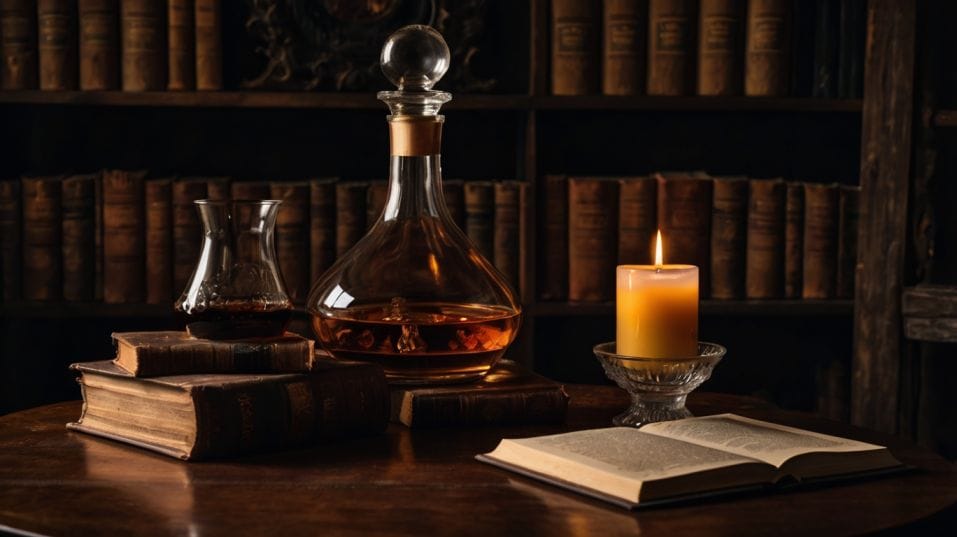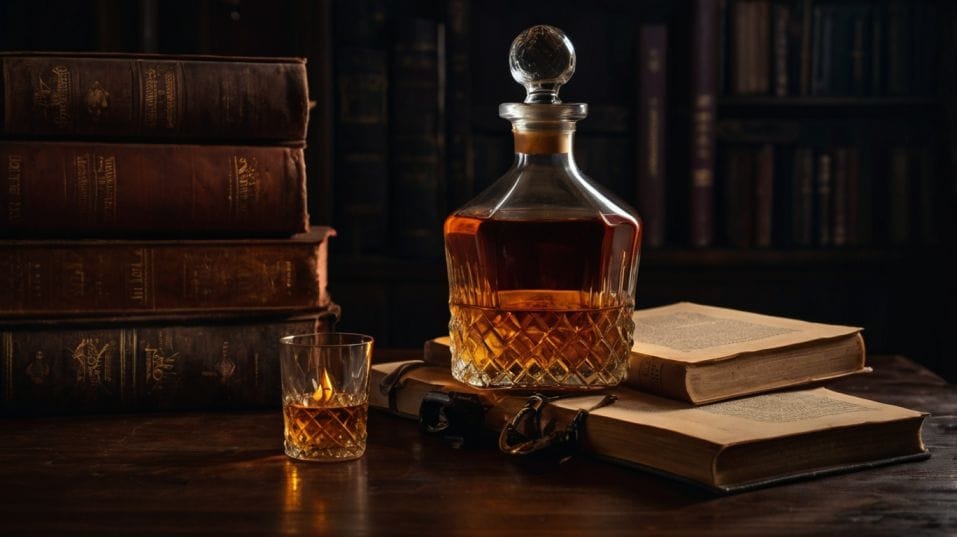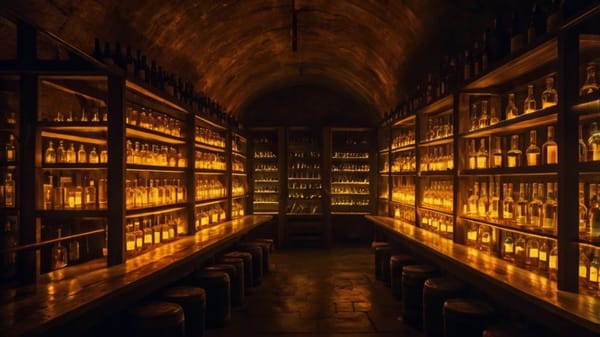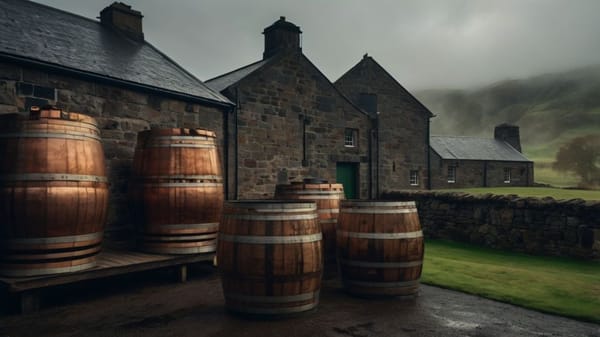Do You Need a Decanter? Pros and Cons
Curious about whiskey decanters? Learn when they help, when they hurt, and how to use one without compromising taste or clarity.

Ever wonder if a decanter actually does anything for your whiskey—or if it's just glassware theater?
If you're past the hype and starting to ask smarter questions, this one matters. A decanter looks sharp, no doubt.
But beyond aesthetics, can it really elevate your pour? Let's get clear on what it adds, what it doesn’t, and when it’s worth making part of your whiskey ritual.
What a Decanter Does (and Doesn’t) Do
First off, let’s kill the biggest myth: a decanter doesn’t age whiskey. Whiskey is a finished product once it leaves the barrel. It doesn’t evolve like wine in the bottle.
So no, leaving a whiskey in a decanter for six months won’t make it smoother or richer. If anything, it might go flat if the stopper isn’t sealed tight.
That said, a decanter can still change your whiskey experience—just not chemically. It changes how you approach the pour. Pouring from a weighty, well-designed decanter creates a ritual.
You’re not just grabbing a bottle—you’re stepping into the moment. That mindset shift matters. It slows things down. Encourages focus. And in whiskey, attention is everything.
Now, let’s talk air. Oxidation happens as soon as you open any whiskey bottle. With more surface area exposed (as in a wide decanter), oxygen has a slightly greater influence.
It won’t dramatically change your pour, but you might notice a softer edge after a few hours—especially with hotter, young whiskeys.
This subtle mellowing can bring forward notes you missed before. Is it science? Sure. Is it hype? Sometimes. But if you’ve got the curiosity, it’s worth exploring.

The Aesthetic Play: Why Style Sometimes Matters
There’s nothing wrong with caring about how your whiskey setup looks. You’re allowed to take pride in the ritual. If you're hosting, a decanter can elevate the vibe. It says: “This pour matters.” It turns the act of serving into a statement.
In fact, many collectors use decanters for the bottles they know best. That way, they don’t need the label. They’re familiar with the whiskey’s every note. It’s less about showing off, more about celebrating something already understood.
That said, looks shouldn’t override logic. If the decanter’s just there to impress guests—or worse, disguise a subpar whiskey—you’re not learning anything. You’re performing. That might work for dinner parties, but it won’t build your palate.
Practical Uses: When a Decanter Solves a Problem
This isn’t all about aesthetics or ceremony. Sometimes a decanter solves real problems.
Damaged bottles
Old cork crumbling? Label peeling off from years on a dusty shelf? Decant it. Salvage the whiskey and keep it drinkable.
Duplicates
Got two of the same bottle and want to keep one pristine? Decant the open one. Keep the sealed one stored properly.
Tight storage
Decanters often fit more easily on shelves than bulky or irregular bottles. If your collection is growing fast, that matters.
Everyday pours
Some people keep a decanter filled with a go-to whiskey—not the rare stuff, but the bottle they reach for midweek. It separates casual sipping from the serious sessions.
Just remember: whatever you pour into a decanter, label it somehow. A discreet tag on the stopper. A small note tucked underneath.
Don’t rely on memory. Over time, even seasoned collectors lose track—and mystery whiskey isn’t a smart training tool.
Where Decanters Can Fail You
For all the romance, decanters come with downsides. Ignore them, and you’re wasting good whiskey.
Air exposure
This is the big one. Unless your decanter has a tight, gasket-style seal (most don’t), air leaks in over time. That’s fine for short-term pours—hours, maybe a couple days. But leave whiskey in a loose-sealed decanter for weeks?
You’ll notice fading. The top notes dull. The finish weakens. It’s like the edges got sanded down—but not in a good way.
Hygiene
Cleaning a decanter is not a passive task. Dust collects fast, and residue from previous pours will cling to corners.
If you clean it with soap and don’t rinse it obsessively, that soapy film will ruin your next whiskey. The right way to clean?
Use warm water, maybe a bit of white vinegar, then let it fully air dry. Patience required. Skip the shortcuts, or you’ll taste the consequences.
Loss of context
If you’re learning whiskey seriously—trying to compare distilleries, cask types, age statements—you need the original bottle. The label is your guide.
Proof, region, mash bill, age—all gone once it’s in a decanter. That might not matter with your everyday dram, but if you’re exploring a new bottle or using it to calibrate your palate, keep it intact.
So, Do You Actually Need a Decanter?
Need? No. A decanter isn’t necessary for collecting, learning, or enjoying whiskey. You can go your entire whiskey life without one and miss nothing essential.
But if you use one with intention—not as a showpiece, not as a shortcut—it can add real value.
Use it for the bottle you know inside out. Use it when you want to create a mood around a pour. Use it to make the act of drinking feel deliberate, focused, memorable.
Just don’t pretend it’s doing the heavy lifting. That’s on you. Your palate. Your curiosity. Your attention to detail.
Final Thoughts
A decanter is like any tool—it only works if you know what you're doing. It can enhance the experience or dilute it. It can help you slow down and appreciate a pour, or it can distract you with empty theater.
So if you’re going to use one, make it count. Pour a whiskey you know well. Taste it fresh, then again after an hour. Ask how it’s changed.
Keep the bottle nearby for reference. And clean your decanter like it holds something worth protecting—because it does.
Try something. Taste it with focus. Build your whiskey journey with purpose—today.




